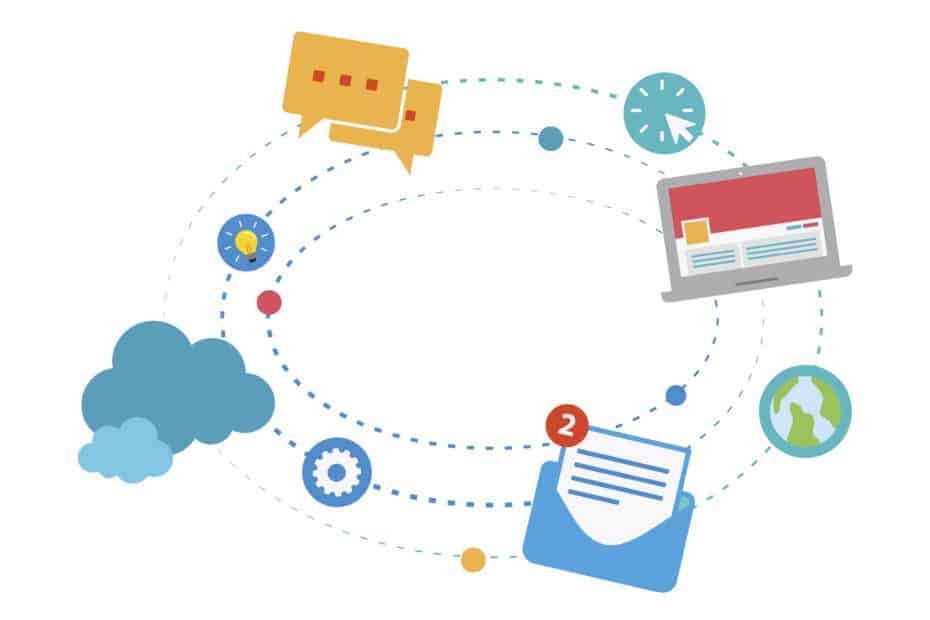📑 Table of Contents
In an era where digital communication dominates, understanding the tools and technologies that facilitate this communication is crucial. One such tool, often working behind the scenes but playing a vital role, is the SMS gateway. So, what exactly is an SMS gateway, and why is it significant in today’s digital landscape?
An SMS gateway acts as a bridge between the world of mobile network operators and the Internet. It enables the sending and receiving of Short Message Service (SMS) messages between mobile devices and software applications. In simpler terms, it’s a system that allows computers to send and receive text messages to and from mobile networks.
How Do SMS Gateways Work?
The functionality of SMS gateways can be intriguing, especially when you consider the seamless integration of internet-based communication with traditional mobile networks. To understand how SMS gateways work, it’s essential to delve into the technical aspects and the processes involved in transmitting messages between these two distinct platforms.
Conversion and Transmission Process
- Initiation of Message: It all starts when a user sends a text message from a web-based application or a software system. This message is typically in a format not natively understood by mobile networks.
- Gateway Conversion: The SMS gateway comes into play here. It receives this internet-based message and converts it into a format compatible with the SMS protocol used by mobile networks. This conversion process involves encoding the message into a protocol like SMPP (Short Message Peer-to-Peer) or CIMD (Computer Interface to Message Distribution).
- Routing the Message: Once converted, the message needs to find its way to the recipient’s mobile device. The SMS gateway communicates with mobile network operators through a process called routing. Efficient routing is crucial to ensure that the message is delivered promptly and accurately.
- Delivery to Recipient: Upon reaching the mobile network, the message traverses through the network’s infrastructure until it reaches the cell tower nearest to the recipient. From here, it’s delivered to the recipient’s mobile device.
- Confirmation of Delivery: After the message is delivered, the SMS gateway receives a delivery report from the mobile network. This report is then relayed back to the originating software application, confirming the successful delivery of the message.
Bidirectional Communication
The process is not just one-way. SMS gateways also facilitate the receiving of SMS messages from mobile devices, translating them into a format suitable for internet-based applications. This capability is essential for applications requiring two-way communication, like SMS-based customer service or voting systems.
- Receiving SMS: When an SMS is sent to a number associated with an SMS gateway, the gateway receives the message from the mobile network.
- Conversion to Internet Format: The gateway then converts this message from the SMS format to a web-friendly format, such as HTTP or XML.
- Relaying to the Application: Finally, the converted message is forwarded to the corresponding web application or software system, completing the cycle of two-way communication.
Technical Considerations
- Latency and Throughput: The efficiency of an SMS gateway is often measured by its latency (the time taken to deliver a message) and throughput (the number of messages processed in a given time). Optimizing these factors is key to ensuring rapid and reliable message delivery.
- Scalability: As businesses grow, their communication needs expand. A good SMS gateway should be scalable and capable of handling increased volumes of messages without compromising on speed or reliability.
- Compatibility and Integration: An effective SMS gateway should easily integrate with various platforms and applications, offering versatile APIs (Application Programming Interfaces) for seamless connectivity.
The workings of an SMS gateway are fundamental yet intricate, involving several steps of conversion, routing, and delivery to ensure that messages reach their destination across different communication platforms.
Applications and Importance of SMS Gateways
SMS gateways are not just technical marvels; they are also incredibly versatile tools with a wide range of applications in various sectors. Their importance in facilitating quick and reliable communication cannot be overstated. Let’s delve deeper into some specific applications and the significance of SMS gateways in these areas.
Diverse Applications of SMS Gateways
- Business and Marketing: Businesses utilize SMS gateways for direct marketing, sending promotional offers, discounts, and product updates to customers. The high open rate of SMS messages compared to emails makes this a highly effective marketing tool. Learn more about text message marketing.
- Customer Service: SMS gateways enable businesses to offer customer support via text messages. Customers can receive instant updates about their queries, order statuses, and more, enhancing the overall customer experience.
- Healthcare Communication: In the healthcare sector, SMS gateways facilitate appointment reminders, health tips, and patient follow-ups. This helps in reducing no-shows for appointments and enhances patient engagement with healthcare providers.
- Banking and Financial Services: Banks and financial institutions use SMS gateways for transaction alerts, balance updates, and fraud alerts. This immediate form of communication is crucial for customer security and satisfaction.
- Educational Alerts: Educational institutions use SMS gateways to send important announcements, emergency alerts, and informational messages to students and parents, ensuring timely and efficient communication.
- Logistics and Transportation: For logistics and transportation services, SMS gateways are used to provide real-time updates on shipments, delivery statuses, and transport schedules.
- Public Alerts and Notifications: Government agencies use SMS gateways to send public alerts like weather warnings, emergency notifications, and public health advisories.
Importance of SMS Gateways
- Universal Accessibility: SMS does not require an internet connection and can reach any mobile phone, making it one of the most accessible forms of communication.
- Reliability and Speed: SMS gateways provide a reliable and quick way to send and receive messages, which is crucial in time-sensitive situations.
- High Open Rates: SMS messages have a significantly higher open rate compared to emails, making them an effective communication channel, especially for urgent notifications.
- Cost-Effectiveness: Compared to other forms of digital marketing and communication, SMS is relatively inexpensive, offering a high return on investment.
- Ease of Integration: SMS gateways can be easily integrated with various software systems, allowing for automated and streamlined communication processes.
- Data Security and Privacy: With increasing concerns about data security, SMS gateways offer a secure way of transmitting sensitive information, adhering to privacy laws and regulations.
- Engagement and Interaction: SMS allows for two-way communication, enabling businesses and organizations to engage directly with their audience, gather feedback, and build stronger relationships.

Conclusion
In conclusion, SMS gateways are more than just a conduit for text messages. They are a cornerstone of modern communication, bridging the gap between traditional mobile networks and the fast-paced, internet-driven world. Understanding their role and capabilities is essential for anyone looking to leverage the power of digital communication effectively. Here’s a more detailed guide on what SMS marketing is.
